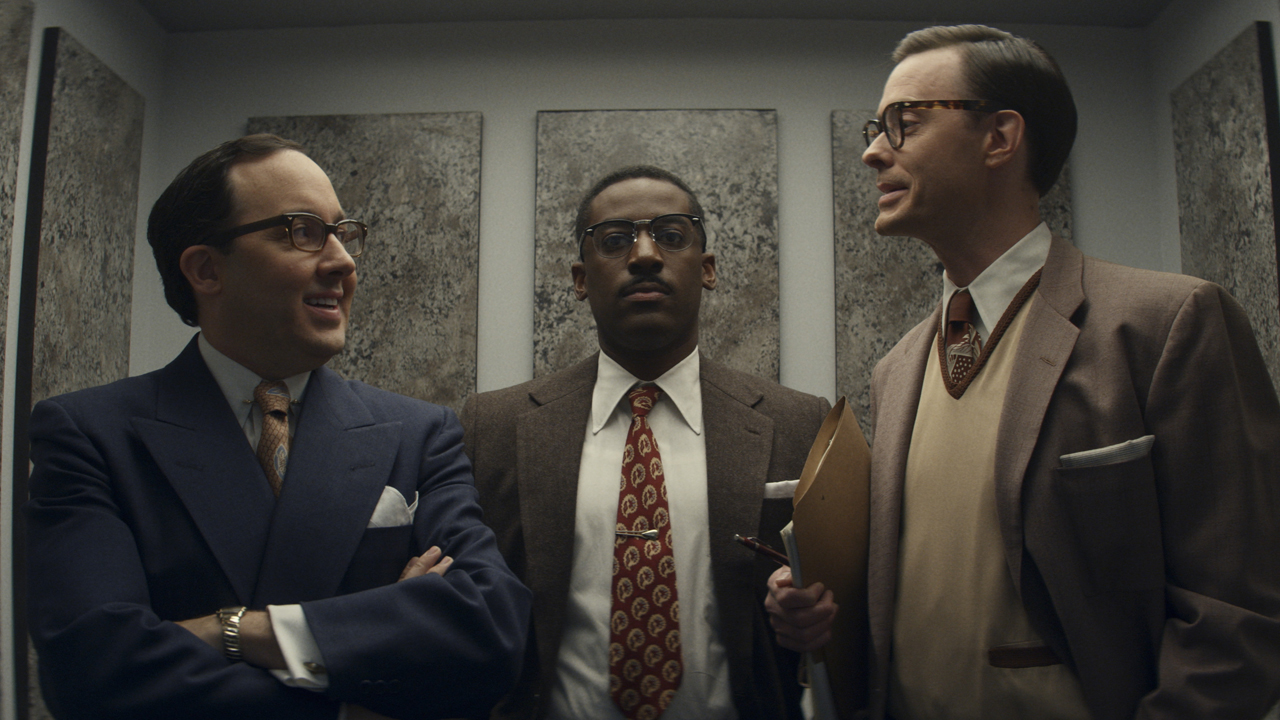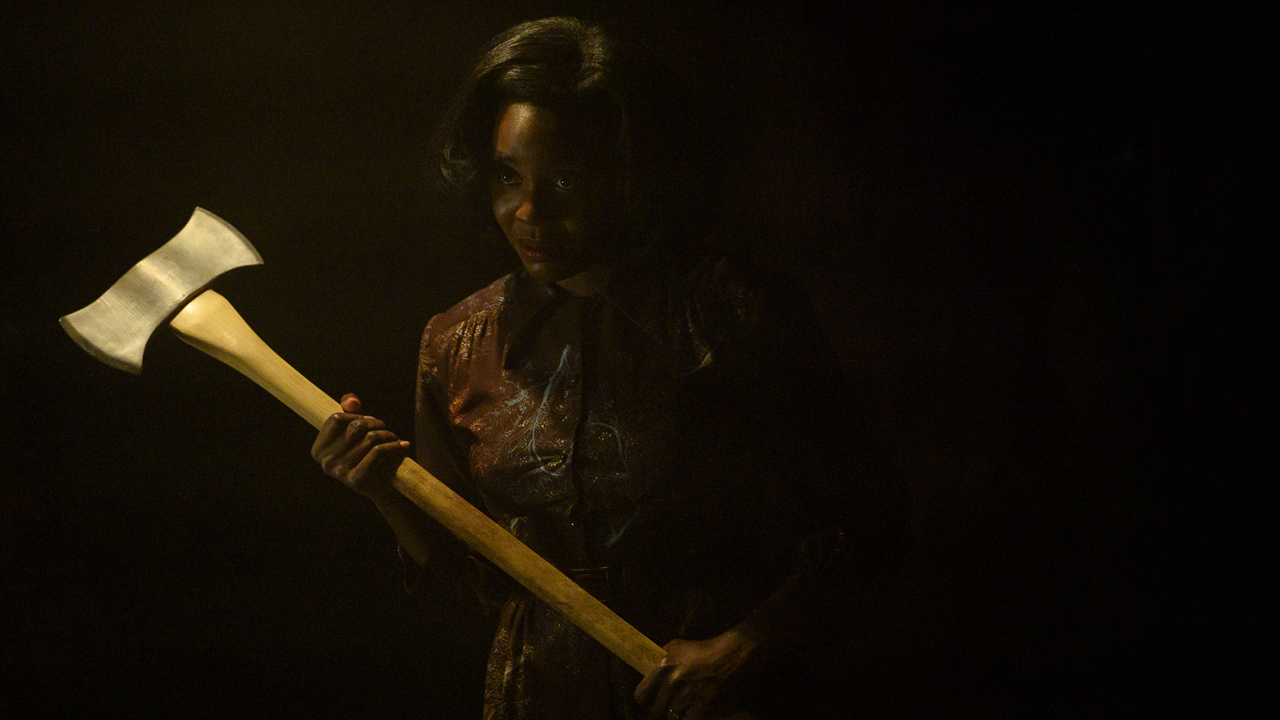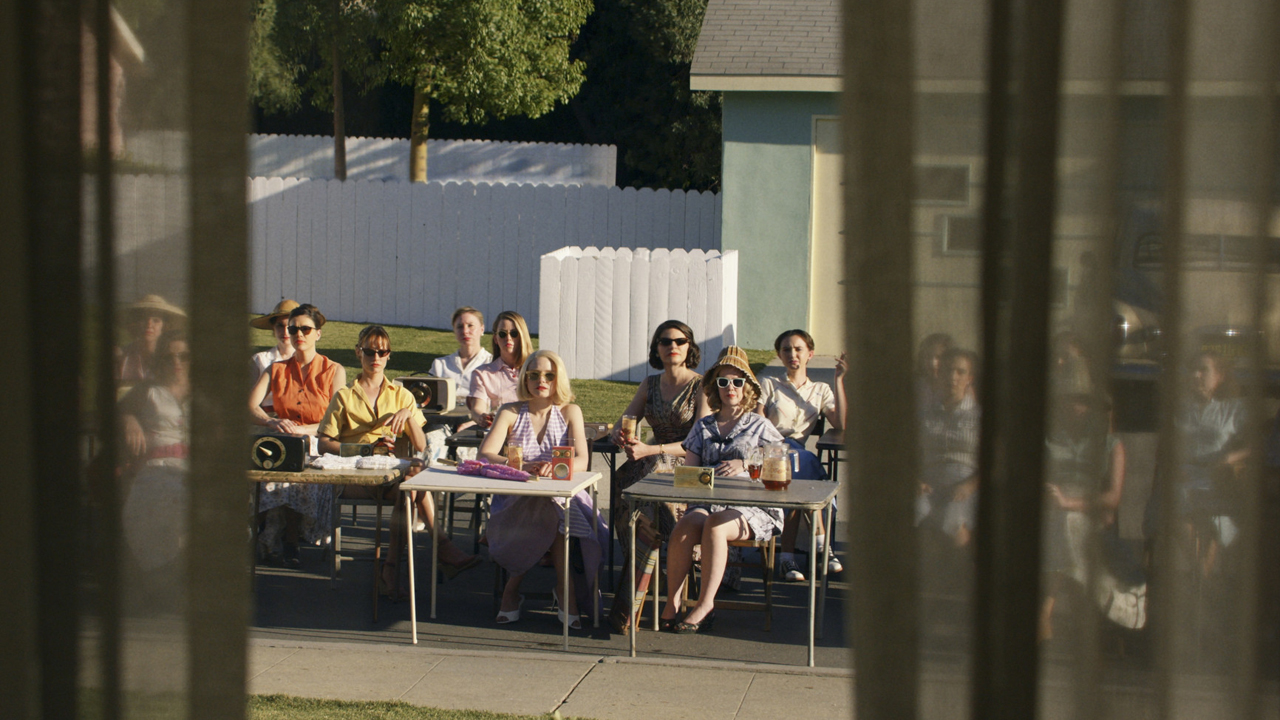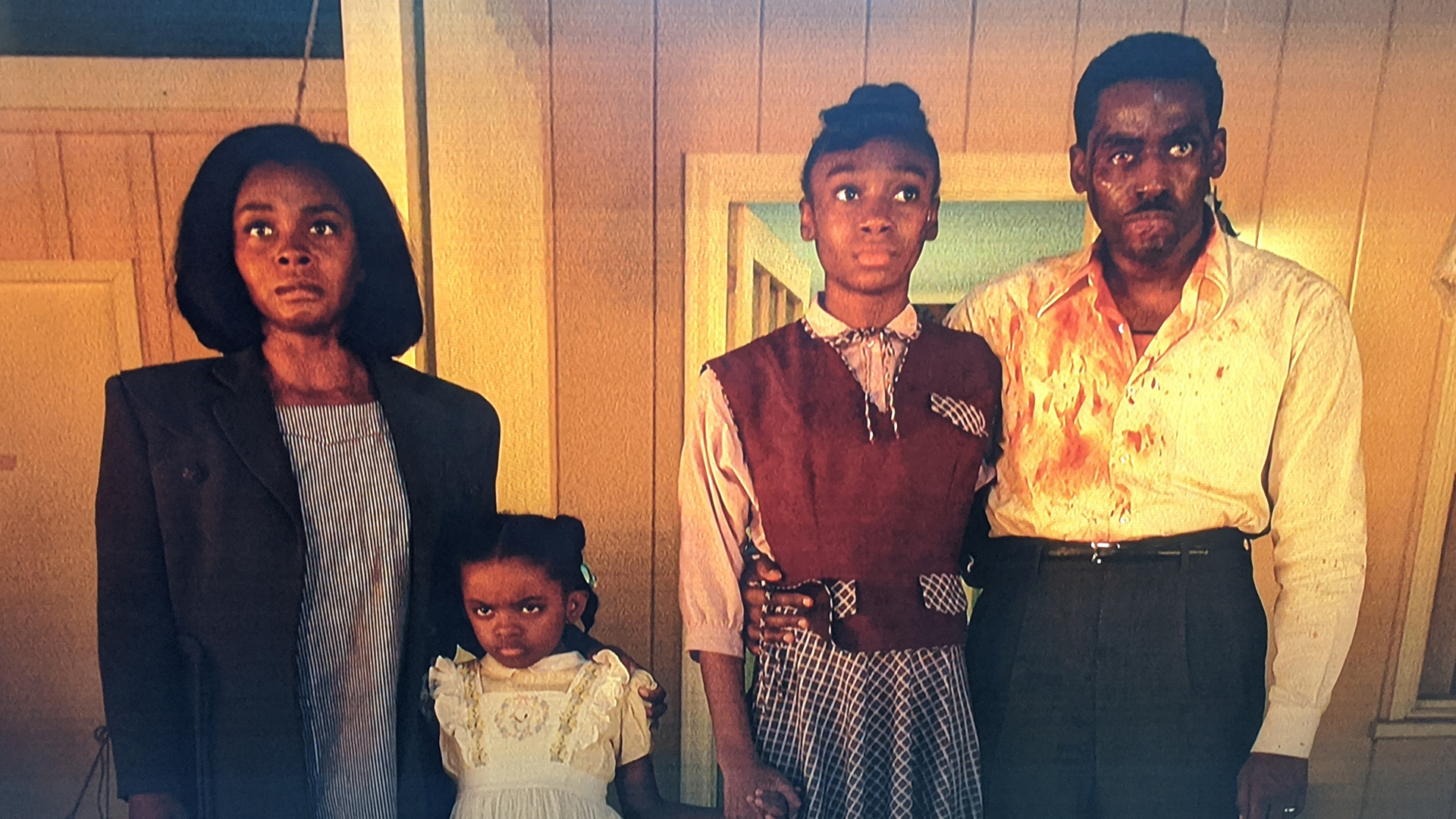
Them is, at-times, an unwatchable TV show. Not because Amazon Prime Video’s latest big drama series is terribly acted or badly written, but because of its distressing content, inspired by the injustice and terror that Black Americans have historically faced, and which many still encounter today.
Ahead of the TV show’s launch, TechRadar spoke to creator Little Marvin and three of Them’s lead actors to learn more about its production, the themes it explores, and some of the issues the creative team is hoping to raise with the show.
- How to watch Them online: stream the new Amazon Prime Video series now
- Best TV shows on Amazon Prime Video
- Is there an Amazon Prime Video free trial?
Malevolent marginalization

Set in 1953, Them: Covenant – the series’ full title – follows the Emory family’s relocation from North Carolina to Compton, Los Angeles. Their initial excitement, though, soon turns to dread when the Emorys find themselves living in an all-white neighborhood.
It isn’t long before they’re subjected to horrific prejudice, and worse. Over a 10-day period, father Henry (Ashley Thomas), mother Lucky (Deborah Ayorinde) and daughters Ruby (Shahadi Joseph Wright) and Gracie (Melody Hurd) are psychologically and physically abused by their neighbors, all while being tormented by a seemingly supernatural force that threatens both their familial bond and their grip on reality.
It may be the supernatural elements that places Them in the horror genre, but it's in the exploration of discrimination and systemic racism where the TV show is at its most harrowing. In telling the story of a Black family that experiences persecution after moving to a new home, countless scenes depict the upsetting exploitation and abuse of Black Americans in visceral detail – so much so that filming the series evidently took its emotional toll on members of the cast.
“I found it very difficult,” Thomas said. “The weight of the story that we were telling, I just kept thinking ‘This is what our people were going through’. It was hurtful and painful shooting it. I’m not an emotional person but, one day, I just burst into tears. To see people judged for their skin color, it made me really emotional.”
For show creator Little Marvin, Them is a harrowing-but-necessary exploration of what it means to be Black American citizen. The series is set during the Great Migration, a decades-spanning event that saw six million African Americans relocate to the Northeast, Midwest, and West of the United States to escape the racial segregation they were being subjected to in the South. The everyday racism they experienced was institutionalized by the Jim Crow laws, which mandated the separation of Black and white individuals in all areas of daily life.
Get daily insight, inspiration and deals in your inbox
Sign up for breaking news, reviews, opinion, top tech deals, and more.
I hadn’t counted on how emotionally cathartic it would be to center a Black family in these kinds of domestic thrillers.
Little Marvin, Them: Covenant creator
It was this weaponization of public spaces against Black people, plus Marvin’s own family history of relocating to Massachusetts during that time period, that fundamentally informed Them’s plot, setting and characters.
“I wanted to write a love letter to all the Black families who scrapped, scraped and drove impossible distances to get to cities where they thought they would escape the terror and injustice of the Jim Crow South,” Marvin says. “But, ultimately, [they] found themselves confronted with the exact same things they left in their rearview mirror.”
Marvin began penning his debut TV series as a response to what many Black Americans were seeing as a growing climate of racism, including high-profile cases in which Black men and women were harassed, abused and in some cases killed by the police. It’s this terror, in his opinion, that pushes Black filmmakers to explore such mortifying topics in two genres in particular: drama and horror.
“What I find interesting is that many of us are drawn to these genres to tell our stories,” Marvin says. “That says as much about our country, and our relationship to our country, as it says about our relationship to our art. We could’ve done this exact same show as just a drama but, while it may have been a hard pill to swallow, I think that these genres have an amazing opportunity to couch social issues in a form that you want to watch.”
Wicked women

The social issues Marvin alludes to are experienced even more intensely by Black women. Ayorinde, who confessed that she was “treated as if I didn’t belong” when she relocated from London to San Jose as a child, admitted that playing Lucky provided her with some catharsis in relation to what it means to be a Black woman – both in the show's period setting and also in modern-day America.
“At the time, and even now, Black women are facing these two evils,” she says. “I felt like that was handled with a lot of care and truth, and it speaks to the writing and care that Little Marvin took with crafting this story. I thanked him for allowing me to let loose, yell, scream, cry and be imperfect. It was challenging to be Lucky, but it also gave me a sense of freedom.”
Chief among the series’ antagonists is Betty Wendell (Alison Pill), who leads Compton’s racially-charged assault on the Emorys. That a woman should instigate the verbal and psychological attacks against the family may come as a shock to some viewers. However, as Pill explains to us, white women were often the perpetrators of segregation, and of the terrorizing of Black families in the 1950s. It’s a lesser-known aspect of American’s racial past that Them shines a light on, and Pill hopes it will lead to soul-searching among white women in particular.
“I wish it was harder for me to find inspiration for a character like this,” Pill said. “[But] it’s easy for me to find the inspiration and the mindset [for Betty] in the news cycle. I think about Betty calling the cops on her neighbors, and the white women who have been doing that for decades since, and who continue to do so. I hope Them allows white women to look at how their own acceptance of power and privilege, at the cost of others’ freedom and safety, only reinforces systems that are harmful to everyone.”
Instigating change?

Them doesn’t really break new ground when it comes to depicting racial inequalities and intolerance. Other recent horror productions, including Jordan Peele’s Get Out and HBO TV series Lovecraft Country, have also explored these subjects, even if Marvin claims that Them “presupposed those productions” in its development.
What Them has done, though, is prompt discussions about the use of Black trauma in horror. Following the release of Them’s official trailer, some Twitter users voiced their frustration over the continual use of African American torture as the lynchpin for genre stories.
In Marvin’s view, the stories of abuse suffered by Black Americans at the hands of their fellow countrymen – however unsettling or even horrific – need to be told. Not from a view of wanting to embellish Black torture, but to show that Black and other ethnic minority actors can be the protagonists, or even the heroes, of movies and TV shows that bring social injustices into sharp focus.
“As a kid, you don’t realize how by never seeing yourself in the things you love, you’re being erased from those things,” he says. “You’re told in subtle and not-so-subtle ways that you can love these things but not be in or of them. I hadn’t counted on how emotionally cathartic it would be to center a Black family in these kinds of domestic thrillers. Reclaiming those classic frames, and centering the historically un-centered, has been the most thrilling and rewarding piece of the journey.”
Still, consciously or not, Them appears to be testing the patience of some viewers when it comes to Black trauma being used in this context. More stories in this series are coming, with Amazon Prime Video greenlighting a two-season order for Them back in 2019. However, unless there’s a marked change in approach, it could be argued that the use of Black trauma is in danger of becoming one of the very same horror tropes that the creators of these types of series hope to counteract. Ultimately, now that the first season is available to stream, it's up to viewers to make that call.
Them is available to watch exclusively on Amazon Prime Video now.
As TechRadar's senior entertainment reporter, Tom covers all of the latest movies, TV shows, and streaming service news that you need to know about. You'll regularly find him writing about the Marvel Cinematic Universe, Star Wars, Netflix, Prime Video, Disney Plus, and many other topics of interest.
An NCTJ-accredited journalist, Tom also writes reviews, analytical articles, opinion pieces, and interview-led features on the biggest franchises, actors, directors and other industry leaders. You may see his quotes pop up in the odd official Marvel Studios video, too, such as this Moon Knight TV spot.
Away from work, Tom can be found checking out the latest video games, immersing himself in his favorite sporting pastime of football, reading the many unread books on his shelf, staying fit at the gym, and petting every dog he comes across. Got a scoop, interesting story, or an intriguing angle on the latest news in entertainment? Feel free to drop him a line.